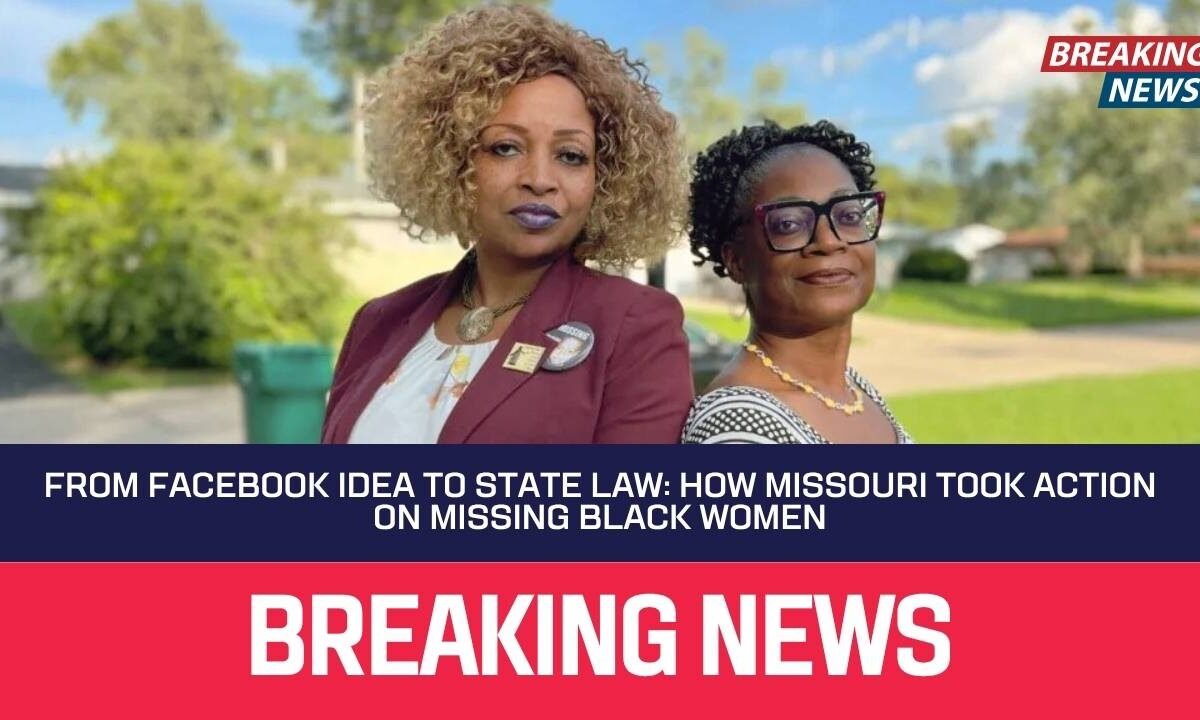A new Missouri law that takes effect on August 28 aims to tackle a serious issue — the growing number of missing and murdered African American women and girls. The law will create a task force to study and address this crisis.
This important step was led by Senator Angela Mosley, a Democrat from Florissant, Missouri. She worked for years to push this idea forward, inspired by a similar law passed in Minnesota in 2022. Now, her efforts have paid off with the passing of House Bill 495.
How the Bill Came to Life
Senator Angela Mosley got the idea for the bill after talking with a friend on Facebook. That friend told her about Minnesota’s law that focused on the same issue. Later, while attending a national conference for Black women in politics, Mosley met the Minnesota lawmaker who helped pass the original bill.
After learning more about the process, Mosley used the same language from Minnesota’s law to write Missouri’s version. Her chief of staff also went around to speak with other senators and representatives, asking for their support.
Although the bill failed to pass in 2023, Mosley stayed determined. In 2024, she added the bill’s language into HB 495, which passed the General Assembly. Governor Mike Kehoe signed it into law on March 26.
The Reality of Missing Black Women and Girls
The number of Black women and girls reported missing is deeply troubling. According to the National Crime Information Center, out of more than 271,000 missing girls and women in 2022, about 36% were Black. This is shocking because Black females only make up about 14% of the U.S. female population.
These numbers show that the issue is not just about crime — it’s also about racial injustice and systemic racism.
A Mother’s Story: Shemika Cosey
One heartbreaking example is the story of Shemika Cosey, who disappeared in 2008 in the St. Louis suburb of Berkeley. She was just a teenager at the time. Her mother, Paula Hill, last saw her daughter getting into a car after a sleepover.
The next morning, Shemika’s aunt discovered she was gone. The door was slightly open, and Shemika’s coat and purse were missing, but her overnight bag was still inside. The family contacted the police, but they were told to wait before filing a report.
When the report was finally filed, the police labeled Shemika as a runaway, not a missing person. Hill didn’t understand why, since her daughter had never gone missing before. She felt that the police didn’t take the case seriously.
Hill decided to take matters into her own hands by hanging up posters and contacting the media. Luckily, she was able to get help from news outlets like Good Morning America, PBS, and local TV stations. Many families, however, do not have the same media access.
Why Black Cases Are Often Overlooked
Senator Mosley believes racism is part of the reason why Black women and girls are not always treated with the same urgency when they go missing. She said one goal of the new task force is to hold the state accountable when it fails to act.
A post from the U.S. Department of Justice also confirms this issue. It says that cases involving Black victims often don’t get the same attention as cases involving white victims.
Hope Through Technology
In 2024, the National Center for Missing and Exploited Children reached out to Hill. They used AI (Artificial Intelligence) to create an image showing what Shemika might look like at age 31.
Hill said the picture gave her hope and could help someone recognize her daughter. “She’s not a teenager anymore; she’s now a grown adult,” Hill said.
A Mother’s Promise
Paula Hill has never stopped searching. She says she’ll keep going until her daughter is found. “I’m not letting anyone forget Shemika Cosey,” she said.
Her story highlights the need for more action, and this new Missouri law is one step toward making sure that every family gets justice, regardless of their background.
Conclusion
The new Missouri task force marks a significant move toward addressing the overlooked crisis of missing African American women and girls. Thanks to the efforts of leaders like Sen. Angela Mosley and dedicated families like Paula Hill’s, this issue is finally getting the attention it deserves. With better laws, awareness, and tools like AI technology, there’s hope for real change in how these cases are handled — and most importantly, hope for the families still waiting for answers.




